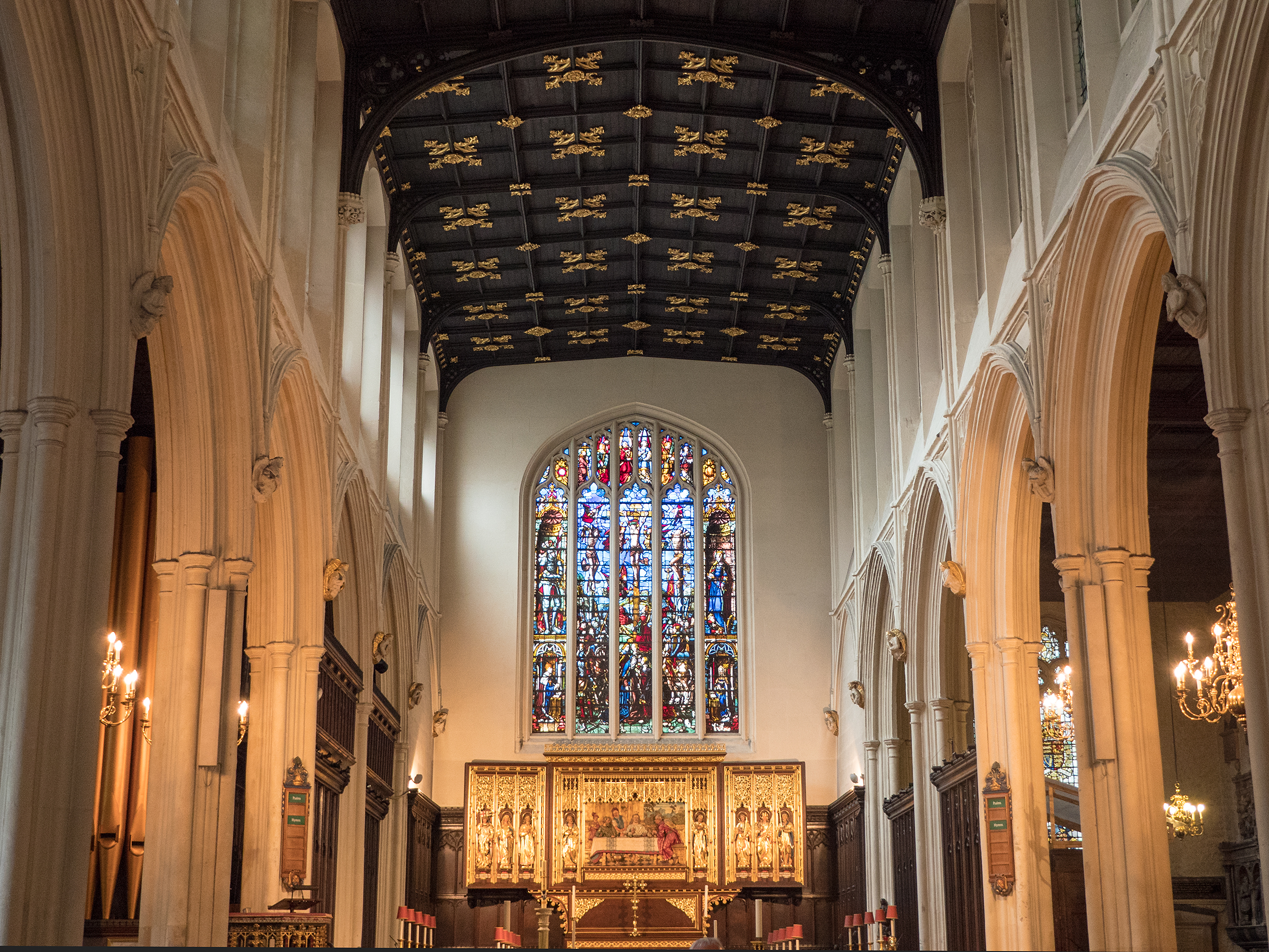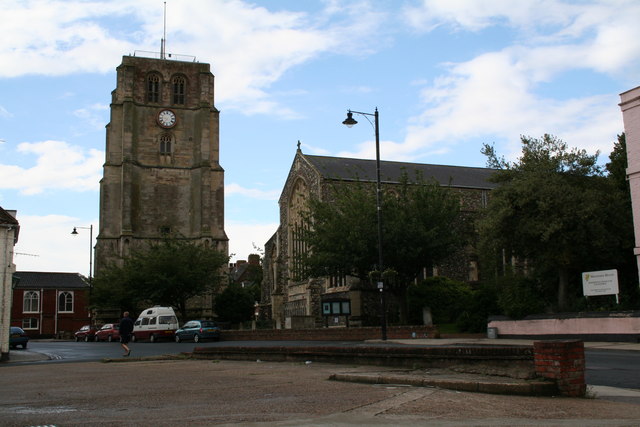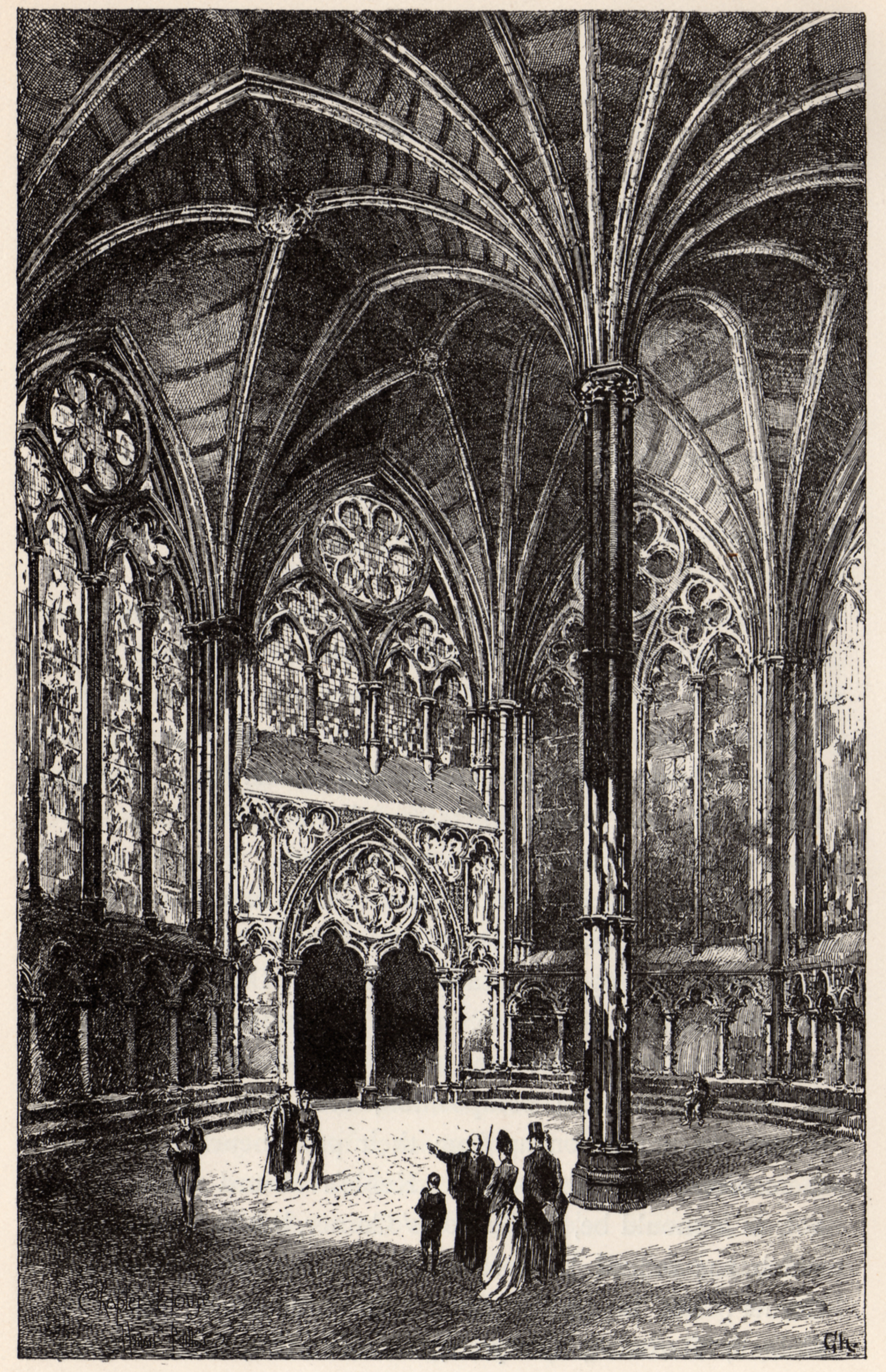|
Sir Charles Rich, 3rd Baronet
Sir Charles Rich, 3rd Baronet (1680 – 17 October 1706) was an officer in the Royal Navy during the War of the Spanish Succession. Born in 1680, the eldest of four sons of the politician and Lord of the Admiralty Sir Robert Rich, 2nd Baronet, Charles Rich embarked on a naval career. He was commissioned a lieutenant on 9 January 1697 and appointed as second lieutenant of the 60-gun . His commission was confirmed by the Admiralty on 24 March 1697 and on 14 April 1697 he joined the 100-gun HMS ''Queen as her fifth lieutenant. From the ''Queen'' he transferred into the 50-gun on 25 November 1697 as her first lieutenant, and then the 32-gun on 23 March 1698. On 17 July 1699 Rich was appointed first lieutenant of the 48-gun . On 25 September 1699, he succeeded his father as Vice-Admiral of Suffolk, several days before his father's death on 1 October 1699. As his father's heir, Charles succeeded to the family baronetcy as third baronet, of London, but continued his naval career. On ... [...More Info...] [...Related Items...] OR: [Wikipedia] [Google] [Baidu] |
St Margaret's Church, Westminster
The Church of St Margaret, Westminster Abbey, is in the grounds of Westminster Abbey on Parliament Square, London, England. It is dedicated to Margaret of Antioch, and forms part of a single World Heritage Site with the Palace of Westminster and Westminster Abbey. History and description The church was founded in the twelfth century by Order of Saint Benedict, Benedictine monks, so that local people who lived in the area around the Abbey could worship separately at their own simpler parish church, and historically it was within the hundred of Ossulstone in the county of Middlesex. In 1914, in a preface to ''Memorials of St. Margaret's Church, Westminster'', a former Rector of St Margaret's, Hensley Henson, reported a mediaeval tradition that the church was as old as Westminster Abbey, owing its origins to the same royal saint, and that "The two churches, conventual and parochial, have stood side by side for more than eight centuries – not, of course, the existing fabrics, but ... [...More Info...] [...Related Items...] OR: [Wikipedia] [Google] [Baidu] |
George Rooke
Admiral of the Fleet Sir George Rooke (1650 – 24 January 1709) was an English naval officer. As a junior officer he saw action at the Battle of Solebay and again at the Battle of Schooneveld during the Third Anglo-Dutch War. As a captain, he conveyed Prince William of Orange to England and took part in the Battle of Bantry Bay during the Williamite War in Ireland. As a flag officer, Rooke commanded a division of the Royal Navy during their defeat at the Battle of Beachy Head. He also commanded a division at the Battle of Barfleur and distinguished himself at the Battle of La Hogue. He was later defeated while escorting a convoy at the Battle of Lagos. Rooke commanded the unsuccessful allied expedition against Cádiz but on the passage home he destroyed the Spanish treasure fleet at the Battle of Vigo Bay in the opening stages of the War of the Spanish Succession. He also commanded the allied naval forces at the capture of Gibraltar and attacked the French fleet at t ... [...More Info...] [...Related Items...] OR: [Wikipedia] [Google] [Baidu] |
British Naval Commanders In The War Of The Spanish Succession
British may refer to: Peoples, culture, and language * British people, nationals or natives of the United Kingdom, British Overseas Territories, and Crown Dependencies. ** Britishness, the British identity and common culture * British English, the English language as spoken and written in the United Kingdom or, more broadly, throughout the British Isles * Celtic Britons, an ancient ethno-linguistic group * Brittonic languages, a branch of the Insular Celtic language family (formerly called British) ** Common Brittonic, an ancient language Other uses *''Brit(ish)'', a 2018 memoir by Afua Hirsch *People or things associated with: ** Great Britain, an island ** United Kingdom, a sovereign state ** Kingdom of Great Britain (1707–1800) ** United Kingdom of Great Britain and Ireland (1801–1922) See also * Terminology of the British Isles * Alternative names for the British * English (other) * Britannic (other) * British Isles * Brit (other) * Briton (d ... [...More Info...] [...Related Items...] OR: [Wikipedia] [Google] [Baidu] |
Baronets In The Baronetage Of England
A baronet ( or ; abbreviated Bart or Bt) or the female equivalent, a baronetess (, , or ; abbreviation Btss), is the holder of a baronetcy, a hereditary title awarded by the British Crown. The title of baronet is mentioned as early as the 14th century, however in its current usage was created by James I of England in 1611 as a means of raising funds for the crown. A baronetcy is the only British hereditary honour that is not a peerage, with the exception of the Anglo-Irish Black Knights, White Knights, and Green Knights (of whom only the Green Knights are extant). A baronet is addressed as "Sir" (just as is a knight) or "Dame" in the case of a baronetess, but ranks above all knighthoods and damehoods in the order of precedence, except for the Order of the Garter, the Order of the Thistle, and the dormant Order of St Patrick. Baronets are conventionally seen to belong to the lesser nobility, even though William Thoms claims that: The precise quality of this dignity is ... [...More Info...] [...Related Items...] OR: [Wikipedia] [Google] [Baidu] |
1706 Deaths
Seventeen or 17 may refer to: *17 (number), the natural number following 16 and preceding 18 * one of the years 17 BC, AD 17, 1917, 2017 Literature Magazines * ''Seventeen'' (American magazine), an American magazine * ''Seventeen'' (Japanese magazine), a Japanese magazine Novels * ''Seventeen'' (Tarkington novel), a 1916 novel by Booth Tarkington *''Seventeen'' (''Sebuntiin''), a 1961 novel by Kenzaburō Ōe * ''Seventeen'' (Serafin novel), a 2004 novel by Shan Serafin Stage and screen Film * ''Seventeen'' (1916 film), an American silent comedy film *'' Number Seventeen'', a 1932 film directed by Alfred Hitchcock * ''Seventeen'' (1940 film), an American comedy film *'' Eric Soya's '17''' (Danish: ''Sytten''), a 1965 Danish comedy film * ''Seventeen'' (1985 film), a documentary film * ''17 Again'' (film), a 2009 film whose working title was ''17'' * ''Seventeen'' (2019 film), a Spanish drama film Television * ''Seventeen'' (TV drama), a 1994 UK dramatic short starring Ch ... [...More Info...] [...Related Items...] OR: [Wikipedia] [Google] [Baidu] |
1680s Births
Year 168 ( CLXVIII) was a leap year starting on Thursday (link will display the full calendar) of the Julian calendar. At the time, it was known as the Year of the Consulship of Apronianus and Paullus (or, less frequently, year 921 ''Ab urbe condita''). The denomination 168 for this year has been used since the early medieval period, when the Anno Domini calendar era became the prevalent method in Europe for naming years. Events By place Roman Empire * Emperor Marcus Aurelius and his adopted brother Lucius Verus leave Rome, and establish their headquarters at Aquileia. * The Roman army crosses the Alps into Pannonia, and subdues the Marcomanni at Carnuntum, north of the Danube. Asia * Emperor Ling of Han succeeds Emperor Huan of Han as the emperor of the Chinese Han Dynasty; the first year of the ''Jianning'' era. Births * Cao Ren, Chinese general (d. 223) * Gu Yong, Chinese chancellor (d. 243) * Li Tong, Chinese general (d. 209) Deaths * Anicetus, pope of Rom ... [...More Info...] [...Related Items...] OR: [Wikipedia] [Google] [Baidu] |
Rich Baronets
There have been four baronetcies created for persons with the surname Rich, two in the Baronetage of England, one in the Baronetage of Great Britain and one in the Baronetage of the United Kingdom. As of 2008 three of the creations are extinct while one is dormant. The Rich Baronetcy, of Sunning in the County of Berkshire, was created in the Baronetage of England on 20 March 1660 for Thomas Rich, a wealthy Turkey Merchant who also represented Reading in the House of Commons. The second baronet was member of parliament for Reading and Gloucester. The title became extinct on the death of the fifth baronet in 1803. See also the 1863 creation below. The Rich Baronetcy, of London, was created in the Baronetage of England on 24 January 1676 for Charles Rich, of Mulberton, Norfolk, with remainder to his son-in-law and distant cousin Robert Rich, son of Nathaniel Rich, who inherited the baronetcy the following year. He was a successful politician. His younger son, the fourth Baronet ... [...More Info...] [...Related Items...] OR: [Wikipedia] [Google] [Baidu] |
Vice-Admiral Of Suffolk
S, or s, is the nineteenth letter in the Latin alphabet, used in the modern English alphabet, the alphabets of other western European languages and others worldwide. Its name in English is ''ess'' (pronounced ), plural ''esses''. History Origin Northwest Semitic šîn represented a voiceless postalveolar fricative (as in 'ip'). It originated most likely as a pictogram of a tooth () and represented the phoneme via the acrophonic principle. Ancient Greek did not have a phoneme, so the derived Greek letter sigma () came to represent the voiceless alveolar sibilant . While the letter shape Σ continues Phoenician ''šîn'', its name ''sigma'' is taken from the letter ''samekh'', while the shape and position of ''samekh'' but name of ''šîn'' is continued in the '' xi''. Within Greek, the name of ''sigma'' was influenced by its association with the Greek word (earlier ) "to hiss". The original name of the letter "sigma" may have been ''san'', but due to the complica ... [...More Info...] [...Related Items...] OR: [Wikipedia] [Google] [Baidu] |
Sir Robert Rich, 4th Baronet
Field Marshal Sir Robert Rich, 4th Baronet (3 July 1685 – 1 February 1768) was a British cavalry officer. As a junior officer he fought at the Battle of Schellenberg and at the Battle of Blenheim during the War of the Spanish Succession. He was then asked to raise a regiment to combat the threat from the Jacobite rising of 1715. He also served with the Pragmatic Army under the Earl of Stair at the Battle of Dettingen during the War of the Austrian Succession. As a Member of Parliament he represented three different constituencies but never attained political office. Career Born the son of Sir Robert Rich, 2nd Baronet and Mary Rich (née Rich, daughter of Sir Charles Rich, 1st Baronet), Rich was commissioned as an ensign in the 1st Regiment of Foot Guards and lieutenant in the Army on 10 June 1700. He fought in the War of the Spanish Succession at the Battle of Schellenberg in July 1704, where he was wounded, and at the Battle of Blenheim in August 1704, where he was wounde ... [...More Info...] [...Related Items...] OR: [Wikipedia] [Google] [Baidu] |
John Charnock
John Charnock (28 November 1756 – 16 May 1807) was a Royal Navy volunteer and author. He wrote a book on the history of marine architecture, a book on Horatio Nelson, 1st Viscount Nelson, and ''Biographia Navalis'' about leading figures in Britain's Royal Navy. Charnock studied at Trinity College, Oxford. He volunteered with the Royal Navy and researched historical and contemporary naval affairs. He was able to hear stories and obtain letters from his friends in the Royal Navy, especially Captain William Locker. Charnock's six-volume ''Biographia Navalis'' was published from 1794 to 1798. In common with William James, William Richard O'Byrne and others who attempted to make a career writing about the Royal Navy, he then encountered financial difficulty. Life He was the son of a barrister, John Charnock of Stanford-on-Soar, Nottinghamshire, and his wife Frances Boothby. He studied at Winchester College and at Trinity College, Oxford, where he matriculated on 15 December 177 ... [...More Info...] [...Related Items...] OR: [Wikipedia] [Google] [Baidu] |
Beccles
Beccles ( ) is a market town and civil parish in the English county of Suffolk.OS Explorer Map OL40: The Broads: (1:25 000) : . The town is shown on the milestone as from London via the A145 and A12 roads, north-east of London as the crow flies, south-east of Norwich and north-northeast of the county town of Ipswich. Nearby towns include Lowestoft to the east and Great Yarmouth to the north-east. The town lies on the River Waveney on the edge of The Broads National Park. It had a population at the 2011 census of 10,123. Worlingham is a suburb of Beccles; the combined population is 13,868. Beccles twinned with Petit-Couronne in France in 1978. History The name is conjectured to be derived from Becc-Liss* (Brittonic=Small-court). However, also offered is Bece-laes* (Old English=Meadow by Stream), as well as a contraction of ''Beata Ecclesia'', the name of the Christian temple erected c. 960 by the monks of the monastery of Bury. Once a flourishing Anglian riverport, it lie ... [...More Info...] [...Related Items...] OR: [Wikipedia] [Google] [Baidu] |
Dean And Chapter Of Westminster
The Dean and Chapter of Westminster are the ecclesiastical governing body of Westminster Abbey, a collegiate church of the Church of England and royal peculiar in Westminster, Greater London. They consist of the dean and several canons meeting in chapter and are also (less frequently) known as the Dean and Canons of Westminster. Foundation The first college of canons was established by letters patent on 17 December 1540 by Henry VIII. Under the Bishop of Westminster of the newly created Diocese of Westminster, there was a dean and 12 canons, six of whom were former monks of the abbey. They survived the dissolution of the diocese in 1550, becoming a second cathedral of the Diocese of London until 1556 when the college was dissolved by Mary I. The second college of canons was established on 21 May 1560 by Elizabeth I, this time as a royal peculiar. From 16 November 1645 the dean and canons were dispersed, and a committee of the Lords and Commons from the Long Parliament governed. T ... [...More Info...] [...Related Items...] OR: [Wikipedia] [Google] [Baidu] |






